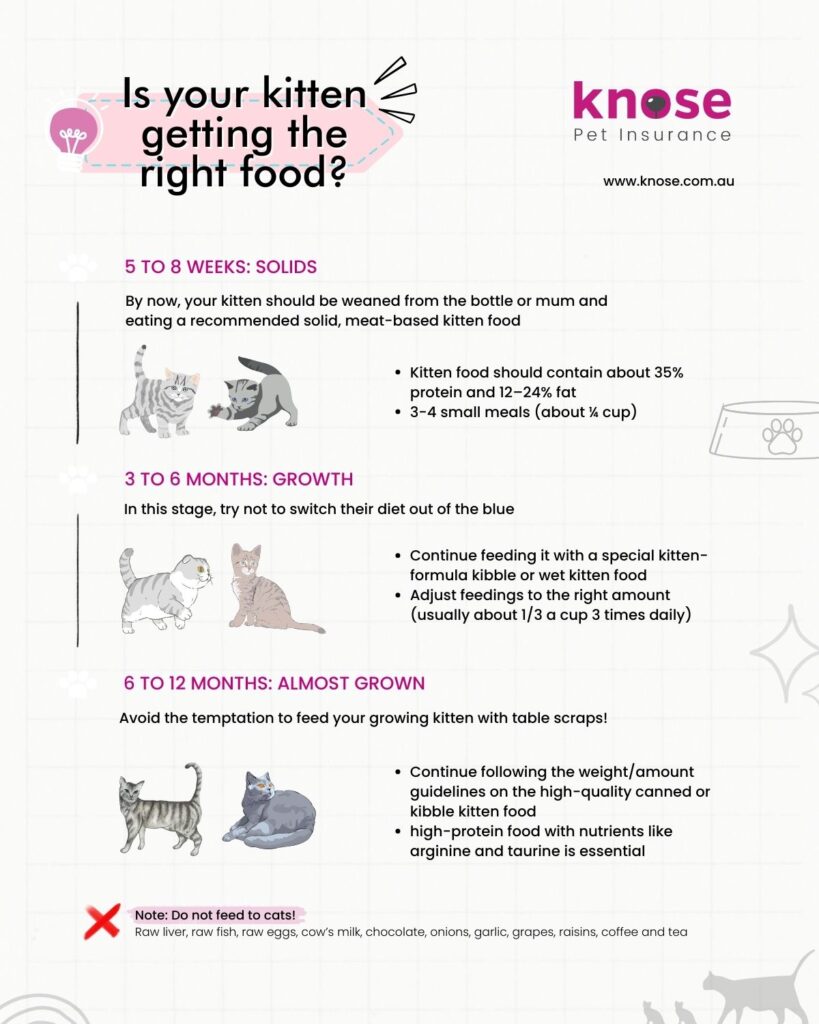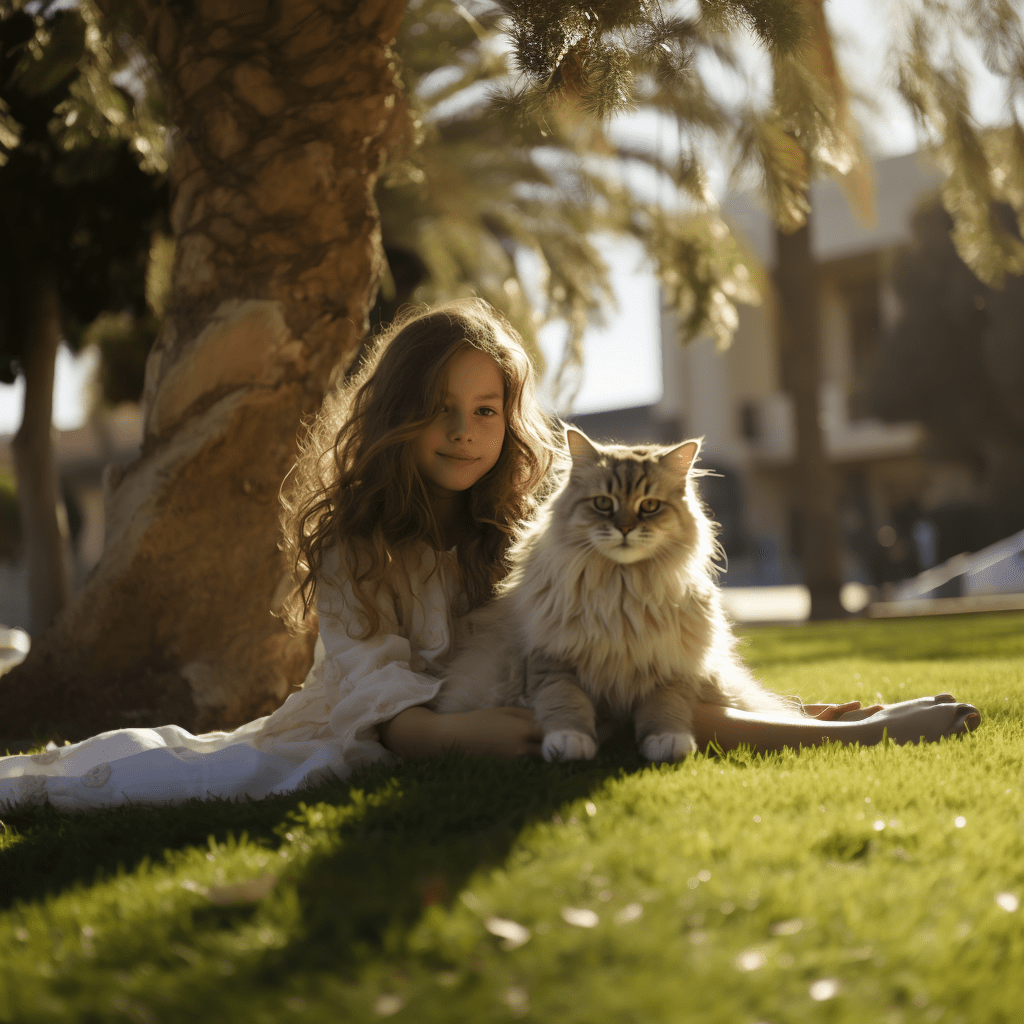Grumpy Cat’s “cattitude” has been a popular internet meme, but having a cat like Sir Grumpy is not what most new kitten parents have in mind for their babies. Most pet owners are interested in raising an affectionate cat to be sweet, friendly, and cuddly cat. But just like children, cat temperaments differ.
How to make your cat more cuddly
We lay six tips can help you train your kitten to be cuddly, enjoy human contact, be less anxious around noises and unfamiliar objects, and generally grow into a well-socialised cat:
1. Don’t treat your kitten like an adult
Ideally, kittens need to spend the first 8 weeks with their mom and siblings—if that isn’t possible, you may need to bottle-feed, cuddle, and nurture your little kitten. Health has a lot to do with raising an affectionate cat. This will require nearly around-the-clock care, the younger the kitten is. If your kitten is younger than 8 weeks, the same care you give to ensure its good health will help it to begin to rely on and trust you as its human parent. Bear in mind that at this age, you will need to:
- Bottle feed special kitty formula to your kitten every 3 hours until it is ready to wean and begin solid foods (a gradual process). You can refer to the infographic below on the feeding stages of a cat or you can read about cat nutrition.

- Cuddle and keep the kitten warm the same way its mother and siblings would if they were all together
- You’ll even need to help a kitten under this age go to the bathroom by gently stimulating its bowels as its body may not be able to do it alone just yet
- Keep your kitten clean and away from other pets and older cats as its immune system is not strong enough, and it may not yet be old enough to start kitten vaccinations.
Learn more about the developmental stages of kittens and take appropriate care at each stage.
2. Gentleness breeds gentleness
Regardless of how many weeks old your kitten is, you will need to treat it with gentleness if you want it to learn the best way for it to interact with others, whether animal or human. Gentleness has a lot to do with raising an affectionate cat!
Use these gentleness tips to condition your kittens so they trust you and learn about gentleness:
- Stay close and cuddle frequently, keeping it warm and cozy
- Pet frequently and affectionately
- Use a soft voice and say its name frequently
- Groom your kitten frequently so it gets used to being brushed and cleaned
- Engage in frequent playtime as it gets older and more energetic — As kittens get older, they have a lot more energy to spare, so playtime is an important way to help it socialise and interact with you and other humans in the home
3. Reward good behavior to raise an affectionate cat
Kittens can’t be “naughty”—they just do what comes naturally. Some cats are not naturally cuddly, so don’t get angry or yell at your kitten. Instead, re-direct your kitten to a toy or scratching post if they bite or scratch during play—don’t censure. In fact, make sure to have safe, quiet places for your kitten to rest if it becomes overwhelmed, and a designated scratching post for it to use when its natural cat inclination strikes. Having a kitten-proof home can encourage your cat to be able to play freely.
After a fun playtime, reward your kitten with a special treat and lots of affection if it has behaved well. (Just be sure not to give too many treats at a time so it doesn’t become overweight. Limit them to less than 10% of your kitten’s daily caloric intake, with the other 90% being a highly-nutritious kitten food.)

4. Socialise & condition
It’s very important not to isolate your kittens, particularly once they’ve been weaned and had their vaccinations, or they won’t be used to people and other animals as adults. As they grow beyond 8 weeks of age, make sure to include them in more appropriate social interactions with humans and other animals in the home. This can contribute greatly to making your cat more cuddly. For instance:
- Introduce them to friends and family
- Introduce them as early as possible to gentle, cat-friendly dogs. This can help a kitten grow out of her instinctive fear of dogs and make the home more peaceable when both types of pets are in the home
- Play music, vacuum, and do other normal, noisy activities so they get used to them early and aren’t afraid of loud noises later on
- Provide lots of playtime with toys and safe objects like boxes, but be sure to be personally involved.
5. Be present for playtime
The importance of personal engagement with your kitten cannot be understated. Playtime with your cats can contribute a lot to raising an affectionate cat. The more you and other family members are directly involved in face-to-face, hand-to-paw playtime, the easier it will be for your kitten to engage with other humans in a friendly way.
6. Keep your kitten healthy
Behaviour is often a secret indicator of how your cat feels. If she is feeling under-the-weather, she may not want to socialise or be affectionate. So, keeping your kitten healthy and providing it with the best nutrition for growth and development will help you raise an affectionate cat. Ensure your kitten gets all of the essential preventative veterinary care like cat vaccinations and de-worming and keep them on a healthy diet so they always feel their best and act their best.
To help pet owners be conscious of their cat’s well-being, we’ve prepared a guide on kitten health problems.
Ensure your cat’s well-being with Knose
Raising an affectionate cat can be challenging enough. So if you’re looking for a way to better manage your cat’s well-being, contact us at Knose and find your plan today. We provide individualised pet care plans that may prevent certain emergencies. They are tailored for your pet’s needs and give you some peace of mind.
Are you eager to learn more about the best way to care for your kittens? Get more knowledge on kitten care with Knose’s pet health tips today.



